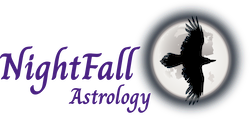No products in the basket.
The Use of Mythology in Western Astrology
Dear NightFall Astrology readers,
Astrology, as an ancient discipline, represents an enduring effort to understand the mysteries of the cosmos and its influence on human existence. Western astrology, in particular, has been extensively shaped by a myriad of cultural, philosophical, and religious influences. Among these influences, one element stands out due to its profound impact on the interpretation of astrological signs and events—mythology.
Mythology, the corpus of traditional narratives integral to various cultures worldwide, provides a fertile ground for understanding complex concepts, ideas, and phenomena through relatable narratives and symbolic expressions. Each myth, born from the imaginative core of ancient societies, holds a specific function: to explain the inexplicable, to offer moral guidance, and to connect individuals to their culture’s collective wisdom and experience.
By intertwining with astrology, mythology has breathed life into the abstract, the planetary bodies, celestial events, and intricate astrological systems. It has assigned them personalities, narratives, and symbolic meanings, enabling people to understand and relate to them on a more personal and intuitive level.
This fusion of astrology and mythology is most evident in Western astrology. The zodiac signs, the planets, and other celestial bodies all bear names from Roman mythology (which itself was heavily influenced by Greek mythology), and these mythological connections infuse astrological interpretation with additional depth and dimension.
Yet, the application of mythology in astrology is not as straightforward as it appears. Tracing the roots and understanding the evolution of mythology’s role in Western astrology requires a deep dive into history, philosophy, and linguistics. To comprehend the implications of this relationship, it is essential to examine the historical context in which horoscopic astrology emerged, the philosophical paradigms that influenced it, and the linguistic transformations that have marked its journey.
While mythology lends an intriguing and engaging narrative to astrology, it’s important to remember that it doesn’t replace astrology’s precision and technicalities. Rather, it enriches it, providing a narrative overlay that helps bring the astrological concepts to life. This article aims to explore this delicate balance between mythology and astrology, delving into their interplay and examining the strengths and limitations of incorporating mythology into astrological interpretations.
I. Philosophical Foundations and the Integration of Mythology in Horoscopic Astrology
Horoscopic astrology emerged in the Mediterranean region around the 1st or 2nd century BC. It was deeply influenced by Athenian and Hellenistic philosophical schools, particularly the philosophy of Plato (437-347 BCE). Robert Schmidt, a renowned scholar of astrology, proposed that horoscopic astrology’s entire framework was conceived by an individual or a group in one or two generations. The foundational premise was based on the Platonic notion that the cosmos is a sentient, living entity with a body and a soul.
According to Schmidt, this cosmic being possesses a rational consciousness capable of understanding the events that happen to individual human beings. The astronomical phenomena studied by astrologers are viewed as expressions of thoughts occurring within the cosmic consciousness of this entity.
This perspective sparked a fusion of pre-existing astrological traditions inherited from both the Babylonian and Egyptian civilisations. Both of these ancient cultures had rich astrological practices intertwined with their religious and mythological beliefs.
The Babylonians were well known for their celestial observations and have left an indelible mark on astrology. Their elaborate system of celestial omens, which tied astronomical phenomena to events on Earth, laid the groundwork for horoscopic astrology. While their astrological interpretations did not directly correspond to the gods’ mythology in their pantheon, they did associate certain celestial bodies with specific gods, attributing symbolic meanings based on those associations.
The Egyptians, on the other hand, integrated their mythology into their astrological system more directly. Their deities were often associated with celestial bodies and their movements, and the Egyptians believed these gods communicated their divine will through these heavenly manifestations. Their astrology was less a system of prediction and more a means of discerning the desires and intentions of their gods.
The synthesis of these diverse astrological traditions led to the development of a sophisticated construct capable of interpreting the thoughts of the cosmic entity in relation to individual humans or events. The technical language of astrology in the Hellenistic era leveraged the intricacies of the Greek language to express these universal concepts with precision.
However, while the planets were named after the Greek pantheon’s gods centuries before horoscopic astrology’s emergence, there was no direct correlation in Hellenistic astrological texts between the mythology of the gods and the significations of the corresponding planetary bodies. The interpretive link between the names of celestial bodies and their corresponding myths in the Western astrological tradition was not established until the 20th century, making it a relatively recent innovation in the history of horoscopic astrology. This modern approach to chart delineation, which incorporates mythology, should be scrutinised within the context of both ancient and contemporary astrological systems to determine its applicability to the astrological construct as a whole, both theoretically and practically.
II. The Incorporation and Evolution of Mythology in Modern Astrology: A Historical and Analytical Perspective
A) The Introduction of Mythology in Modern Astrology and its Association with Jung’s Theories
The first modern Western astrologer who appears to have explicitly used mythology to understand the nature of the planets was Liz Greene. Greene laid the foundation for the use of mythology in modern astrology to emphasise the art’s intuitive function, enabling broader concepts to be conveyed. She saw mythology as a tool to compensate for modern language limitations and to communicate the full complexity of certain astrological concepts.
Greene’s work drew heavily on the theories of psychologist Carl Gustav Jung (1875-1961), particularly his notions of archetypes, the collective unconscious, and the theory of synchronicity. Jung’s concept of the collective unconscious suggests that there are layers within the unconscious, with the deeper collective layer containing ‘archetypes,’ the mythological images that are awakened when psychic energy regresses beyond the individual’s earliest memories.
When we align these theories with Schmidt’s idea of a living cosmos, it opens the possibility of a connection between the collective unconscious that we draw upon and the consciousness of the cosmos. The archetypes or concepts inside that consciousness might be accessible to all humanity and might be intertwined with the cosmos’ thoughts, expressed by the celestial bodies’ movements. Astrology, itself, could be viewed as a structured attempt to translate these multivalent conceptual cognitions of the cosmos into a language that reveals precise ‘thoughts’. Still, the use of mythology to further illustrate certain broad archetypes would be a supplementary layer to an already complex system. The inherent generality of mythology contrasts with the specific nature of astrology’s language.
B) The Evolution of Astrology, Resurgence of Mythology and its Role in the Modern Astrological Construct
As languages in the ancient world supplanted Classical Greek, the original language of Hellenistic astrology, much of the meaning inherent in the initial astrological concepts was lost. Astrology underwent multiple translations and adaptations as it was transmitted to various host cultures, each time undergoing transformations to align with the different belief systems, languages, and cultural customs of its hosts. Although attempts were made to retain the original intent and meaning underlying the technical terminology, much was altered or forgotten in these adaptations.
By the time astrology was revived in the English-speaking world in the 20th century, much of its original theoretical and interpretive edifice had disappeared. Western horoscopic astrology lacked the philosophical and technical depth it once had. When Jung’s psychological concepts were developed and proliferated, it was only natural for them to be adopted and refined by astrologers. They provided a consistent theoretical basis, which astrology had been missing for a while. Much of Jung’s work focused on exploring the concepts of myth and symbolism as they exist in the psyche, aligning with the needs of contemporary astrology.
The use of mythology to elucidate astrological concepts was adopted by astrologers in the 20th century, primarily due to the inadequacies of the existing astrological construct and the available technical terminology. It also served the need to find a better way to convey the thoughts of the cosmic mind. However, mythology is not a precise translation of those concepts or cosmic cognitions. Instead, it acts more like a rough outline or allegory of astrological concepts. It remains separate from the astrological apparatus itself, acting as an additional layer to the initial information that can be gleaned from horoscopic chart placements.
Astrology is fundamentally not mythological or even archetypical at its core. It is a precise language, translatable into many different conceptual paradigms, including the mythological and archetypal realms. However, in doing so, it loses a certain degree of precision inherent in the language of astrology itself. Myth is naturally predisposed to imprecision, leading to generalised and non-specific meanings.
Consequently, while mythology should be used to help elucidate certain narratives and feelings, it should not compromise the system’s technical accuracy or integrity. Mythology should be seen more as a garnish or the figurative ‘icing on the cake’ of the astrological apparatus. It does not constitute the core of the system.
In conclusion, the use of mythology in Western astrology offers an intuitive and allegorical lens through which to interpret celestial events and their impacts on human affairs. However, it is essential to remember that mythology is a supplement to the precise language of astrology, adding depth and richness without overshadowing or replacing the precise and intricate language of astrology itself. As astrologers and astrology enthusiasts, our task is to navigate this intersection of myth and science, weaving together the threads of intuition, symbolism, and technical precision to create a tapestry that illuminates our understanding of the cosmos and our place within it.
Thank you for reading.
Fuel my caffeine addiction and spark my productivity by clicking that ‘Buy me a coffee’ button—because nothing says ‘I love this blog’ like a hot cup of java!
Buy Me a Coffee
Your Astrologer – Theodora NightFall ~
Your next 4 steps (they’re all essential but non-cumulative):
Follow me on Facebook & Instagram!
Subscribe to my free newsletter, “NightFall Insiders”, the place where the most potent magicK happens, and get my daily & weekly horoscopes, exclusive articles, updates, and special offers delivered directly to your inbox!
Purchase one of my super concise & accurate mini-readings that will answer your most pressing Astro questions within 5 days max!
Book a LIVE Astro consultation with me!











